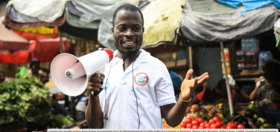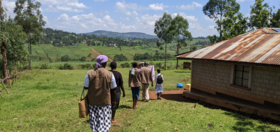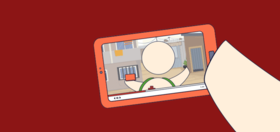Expanding knowledge, improving health.
At Digital Medic, we envision a world where all communities have access to engaging, evidence-based, and actionable health information.

Health Education Design
We work with governments, community-based groups, and other health stakeholders to co-create health worker training and community health education. All resources are open-access, free for anyone to use on any device.
Browse our videos, job aids, & moreHealth education is essential to health equity.
Everyone deserves to make informed decisions about health, whether caring for themselves or others. We are committed to tackling the major drivers of death and disease through training and education.


Where we work
From Stanford, California to Cape Town, South Africa and beyond
180
countries with active learners

Caring for Sick Children in the Community
Globally, 30% of deaths among children under age five are caused by preventable, treatable diseases. Trained community health workers can save lives.
Our open-access refresher training helps health workers identify signs of common childhood illnesses, care for sick children at home, and refer families to health facilities when necessary.
A few of our collaborators

“We absolutely love working with the Digital Medic team. The content you produce is top-notch, and we appreciate the rigorous, thoughtful approach you bring to designing, distributing, and evaluating content.”
Feedback from our 2022 collaborator survey
Recent updates
-
New publication: Community health worker perspectives on advocacy
Explore our article in Frontiers in Public Health, published with CHIC and CHW advisors: “I’ve realized we, as CHWs, our voices can be heard and we can change our community."
April 11, 2024
-
Together Towards Tomorrow: Collaborative Design for Community Health Worker Training
Explore the collaborative design process behind our digital community health worker training on childhood illnesses.
March 29, 2024
-
"Introducing the digital version of the Global Goods Guidebook: Empowering an ecosystem of choice"
See Advocacy Training for Community Health Workers and other vetted open-access health resources in this interactive guidebook.
February 20, 2024
-
Open-Access Course on Childhood Illness Equips Community Health Workers to Save More Lives
"Caring for Sick Children in the Community" offers refresher training on fever, HIV, TB, malnutrition, and other common drivers of preventable child mortality.
January 29, 2024
-
Advocacy Training for CHWs Selected as One of Six Content Global Goods
View the announcement from Digital Square at PATH to see our Advocacy Training highlighted alongside other open-access resources supporting countries in digital transformation.
December 01, 2023









